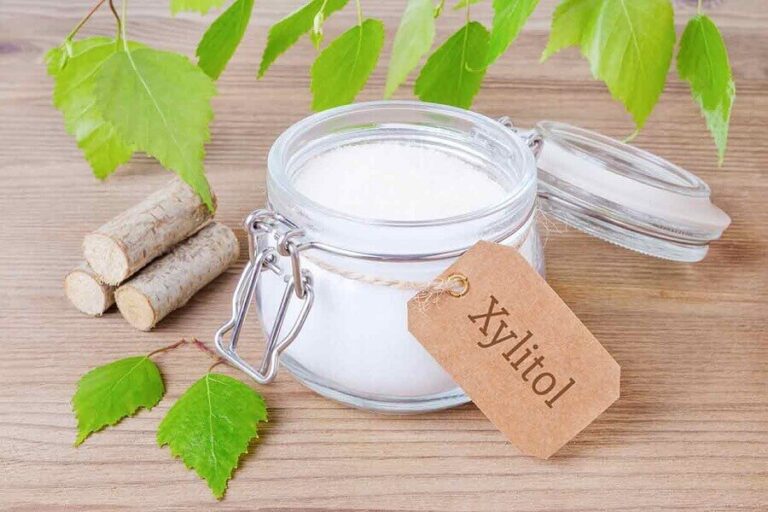Probiotics are bacteria and yeasts that can help improve the health of your digestive system. In addition, recent studies associate them with other benefits. For this reason, probiotics are also known as good bacteria.
Probiotics are found in some foods, like yogurt, although you can also get them in supplements. Doctors recommend taking probiotics for colitis, gastritis, or other disorders in the digestive system.
This article describes what probiotics are, how they are taken, and what they are for. Do they have side effects or contraindications?
What are probiotics?
Probiotics are living microorganisms that can inhabit the human intestinal flora.
One of its main benefits is to improve the digestion process. Probiotics can be found in supplements or added to different products and foods in a “live” state (that is, with the ability to reproduce).
Inadequate amounts, probiotics are capable of improving the health of the digestive system, and some studies claim that they are capable of strengthening the immune system. (1)
There are several types of probiotics, the best known of which are lactobacillus, bifidobacterium, and saccharomyces boulardii.
How to take probiotics?
Taking probiotics is recommended after colitis or gastritis. Although they can have other uses, the ideal is that it is your trusted doctor who indicates how to take them.
The recommended amount of probiotics vary depending on the type of strain, the diet they are combined with, and a person’s health.
Probiotics in capsules contain approximately 1-10 billion CFUs (colony forming units) per dose. This is an average figure, usually enough to reap your benefits.
In addition, it is essential to know that it is recommended to take probiotics on an empty stomach and before meals. Its effects are believed to be optimal under these conditions. The results of taking probiotics are manifested exclusively with the regular use and disappear after the cessation of their consumption.
Benefits of probiotics
Studies have confirmed that taking probiotics in capsules has health benefits. These supplements are used to treat and prevent diseases associated with the intestine and the respiratory system. (1)
In addition, renowned scientists such as Elie Metchnikoff (Russian Nobel Prize winner) claim that taking probiotics can promote longevity. (1) The benefits of probiotics are:
- Prevent diarrhea
Taking probiotics regularly helps prevent diarrhea. If you suffer from frequent stomach problems and diarrhea, taking probiotics may be a solution to the problem. If, in addition, the cause of the diarrhea is antibiotic treatment, these will help reduce its side effects. (4)
- Strengthen the immune system
Taking probiotics is effective in improving defenses against attacks by pathogenic microorganisms. An excellent idea to strengthen the immune system is to take probiotics before going on vacation and during the summer seasons, when infections in the intestine are more frequent.
- Prevent food allergies
For people with food allergies, such as lactose intolerance or gluten intolerance, using probiotics can help. Some microorganisms can digest these molecules and prevent their side effects. These microorganisms are the same tool that industries use to create lactose-free products. (5)
- Prevent and treat colic during lactation
I am taking probiotics while breastfeeding can have its benefits. Some research claims a significant reduction in the average crying of the baby, particularly during the first three weeks. (3) In addition to the fact that it may increase your child’s defenses.
- Relieve irritable bowel symptoms
Taking probiotics can help relieve irritable bowel symptoms. One of the sound effects of Lactobacillus is the reduction of pain intensity and slight improvements in irritability.
- Improve bone density
One of the benefits of probiotics is fixing calcium. Therefore, taking a probiotic serves to improve bone muscle mass. Something essential in women before reaching menopause and potential treatment to prevent osteoarthritis. (4)
- Decrease the risk of colon cancer
While research remains to confirm these benefits, studies suggest that taking probiotics may be a valuable tool to lower cancer risk, such as colon cancer. Stimulating the growth of good microorganisms can provide the conditions for tumors not to grow.
Probiotic Foods: What Are They?
In small amounts, probiotics are present in a wide variety of foods. Some examples of foods are bread, fruits, vegetables, meats and cereals, yogurt, kefir, and some types of cheeses.
The most common probiotics in food are yeasts (Saccharomyces cerevisiae) and bacteria of different genera (Lactobacillus, Streptococcus, Enterococcus, Pediococcus, Bacillus Escherichia). Each probiotic food plays a different role in the digestion process.
Yogurts generally contain Bifidobacterium Lactobacillus. These foods serve to restore the microflora after episodes of gastritis and prevent infections in the stomach. Probiotic foods are:
- Kefir and yogurt
- Cheeses
- Checkout
- Pickles
- Soy-based drinks
- Japanese miso soup
- Korean Kim-chi Plato
- Kombucha
Contraindications and side effects
Scientific evidence states that probiotics in healthy individuals are safe in most cases. Contrary to other traditional medications, probiotics do not have a long list of contraindications and side effects.
In rare cases, they can lead to bacteremia. However, the risk of developing lactobacillus bacteremia is fewer than one million users. They occur in immunosuppressed people or under antibiotic treatments or surgical interventions. (3)
Possible side effects of probiotics are:
- stomach ache
- gases
- inflammation
Probiotics or prebiotics?
Probiotics should not be confused with prebiotics. Prebiotics are not the microorganisms themselves but the food of these micro beings. Prebiotics are the “food” of the “good” microorganisms we already have.
The benefits of taking prebiotics are stimulating the growth of microorganisms. Combining probiotics and prebiotics can help reshape the microflora and improve the intestine’s functioning.
Where to buy probiotics?
Probiotics in supplement form can be purchased at pharmacies and are available over the counter as well as you can include them naturally through food. Before buying probiotics, carefully study the packaging.
It must contain the date of manufacture, shelf life, information on the number of microorganisms in each dose, and a clear indication of the type of bacteria.
Pay attention to the excipients used for the encapsulation of the final product. If you also make sure to buy organic products, you will not only get the benefits of probiotics. But also those of organic food.
ABSTRACT
Probiotics are microorganisms with benefits for the health of the intestine and the respiratory system.
It is recommended to take probiotics on an empty stomach before meals to maximize their effects.
Probiotics can be found in the form of supplements or food. Kefir, yogurt, and some types of cheeses are some examples.
Probiotics have no contraindications and side effects for most.
When buying a probiotic, you must ensure the correct storage conditions. It is always recommended to do treatment under a medical recommendation.







